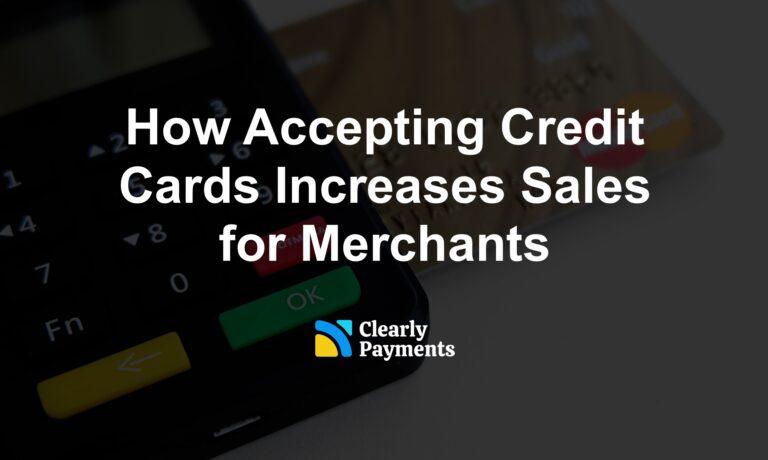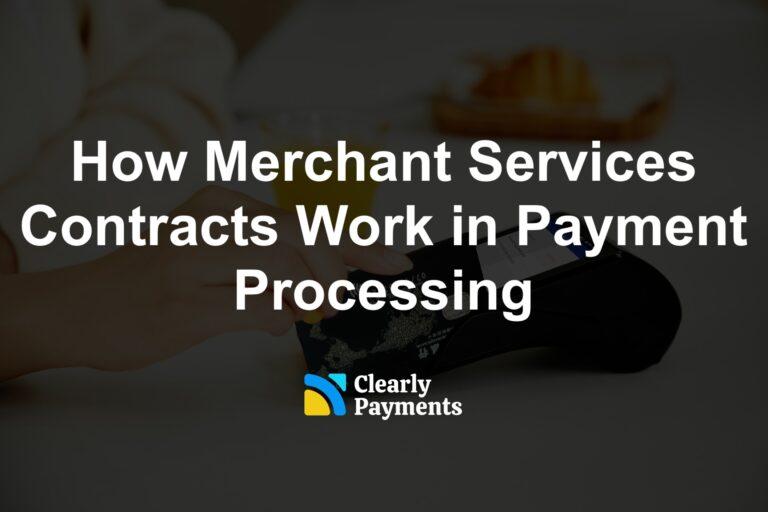Digital payments have become the lifeblood of commerce. Whether you’re a local retail store, an eCommerce giant, or a small business owner, your ability to seamlessly accept payments from customers is paramount to your success. This is where merchant services step into the spotlight, offering a comprehensive suite of financial solutions that empower businesses to navigate the intricate world of electronic payments.
Merchant services encompass an extensive array of financial services, strategically designed to bridge the gap between businesses, particularly retailers and merchants, and their customers.
This article is about merchant services, where we’ll cover the intricacies of their financial solutions, explore their features, and shed light on how they empower businesses to thrive in an era of digital commerce. From payment processing and point-of-sale solutions to security measures and reporting tools, merchant services are the engines that drive modern transactions.
The Definition of Merchant Services
Merchant services refer to a suite of financial services and solutions offered by banks, financial institutions, or specialized payment service providers to businesses, particularly retailers and merchants. These services are specifically designed to facilitate electronic payment transactions, enabling businesses to accept various forms of payment, including credit cards, debit cards, mobile wallets, and online payment methods.
Merchant services play a crucial role in modern commerce by providing the infrastructure and tools necessary to process payments securely and efficiently, both in physical retail locations and in the digital realm of e-commerce.
These services are essential for businesses of all sizes and industries to offer convenient and reliable payment options to their customers, thereby facilitating transactions and contributing to business growth and success.
The Components of Merchant Services
Merchant services encompass a range of essential components and features designed to facilitate electronic payment transactions for businesses. The key components of merchant services typically include:
Payment Processing: This is the core function of merchant services. Payment processors handle the authorization, capture, and settlement of credit card, debit card, and other electronic payment transactions. They ensure that funds are securely transferred from the customer’s account to the merchant’s account.
Point-of-Sale (POS) Solutions: Merchant services often provide businesses with hardware and software solutions for processing payments in physical store locations. These POS systems include card readers, terminals, and software that integrate with the merchant’s inventory and sales management systems.
Payment Gateway Services: Payment gateways are essential for online businesses. They securely transmit payment information between the customer’s browser and the payment processor, enabling eCommerce transactions. Payment gateway services ensure the encryption and secure handling of sensitive payment data.
Payment Acceptance Tools and Credit Card Machines: Businesses receive the necessary tools to accept payments, including credit card terminals, card readers, mobile payment apps, and online payment buttons or links for websites and eCommerce platforms.
Security and Fraud Prevention: Merchant services providers offer security measures to protect businesses and customers from fraudulent transactions. These measures include data encryption, tokenization, and fraud detection tools that monitor and flag potentially suspicious activities.
Settlement and Funding: After a successful transaction, merchant services ensure that funds are settled into the merchant’s bank account promptly. Settlement may occur daily, weekly, or according to an agreed-upon schedule.
Reporting and Analytics: Merchant services often provide businesses with reporting and analytics tools that allow them to track transaction data, monitor sales trends, and generate financial reports. These insights help businesses make informed decisions about their operations and financial strategies.
Customer Support: Businesses rely on merchant services providers for customer support to address payment-related issues, technical problems, or questions. Prompt and responsive customer support is essential for resolving any payment processing challenges that may arise.
Currency Conversion Services: For businesses involved in international transactions, some merchant services providers offer currency conversion services, allowing customers to pay in their local currency while businesses receive payments in their preferred currency.
Recurring Billing: Some merchant services offer features for setting up and managing recurring payments, ideal for subscription-based businesses or those with membership models.
Payment Plans and Financing: Certain merchant services providers offer payment plan options and financing solutions to help businesses offer flexible payment terms to customers.
These components collectively form a comprehensive suite of merchant services, empowering businesses to efficiently and securely process payments, whether in-store or online, while also providing the tools and insights necessary to manage their financial operations effectively.
The Role of Key Players
Several key players contribute to the merchant services ecosystem:
1. Merchant: The merchant, or business owner, is at the center of the merchant services process. They seek merchant services to facilitate payment acceptance, streamline operations, and improve customer experiences.
2. Payment Processor or Acquirer: Payment processors, also known as merchant acquirers, are financial institutions or third-party companies that handle the technical aspects of payment processing. They authorize, settle, and route transactions between merchants and card networks (e.g., Visa, Mastercard).
3. Payment Gateway Providers: These companies offer online payment solutions, including payment gateways and integration tools, enabling businesses to accept payments through websites and mobile apps.
4. Card Networks: Credit card networks are organizations like Visa, Mastercard, American Express, and Discover that oversee the rules and regulations governing card payments. They ensure interoperability and security in electronic payments.
5. POS System Providers: Companies like TCM, Square, Clover, and Lightspeed provide businesses with hardware and software solutions for in-person payment processing, often incorporating various merchant services features.
6. Issuing Banks: Issuing banks are the financial institutions that provide consumers with credit and debit cards. They play a vital role in authorizing and processing card transactions.
Choosing the Right Merchant Services Provider
Selecting the right merchant services provider is a pivotal decision for your business. It’s a choice that impacts the efficiency of your financial transactions and the satisfaction of your customers. Among the multitude of providers available, a strategic approach to evaluation is essential.
Begin by closely examining the fee structure, seeking transparency in cost disclosure. Payment security is paramount, so ensure the provider follows industry best practices in data protection. Evaluate their compatibility with the types of payments your business accepts and check for seamless integration with your existing systems. Consider the quality and responsiveness of their customer support, as this plays a vital role in addressing issues promptly. Investigate the provider’s reputation through customer reviews and pay attention to contract terms, scalability, and their commitment to embracing technological advancements.
Ultimately, a well-considered choice can enhance your payment processing efficiency, security, and customer experience, aligning your business with its financial goals.
Get the best merchant services from TCM
- Lowest-cost processing in the industry
- Fund transfers in less than one day
- A full set of payment products to accept credit cards from anywhere in the world
- World-class customer service




